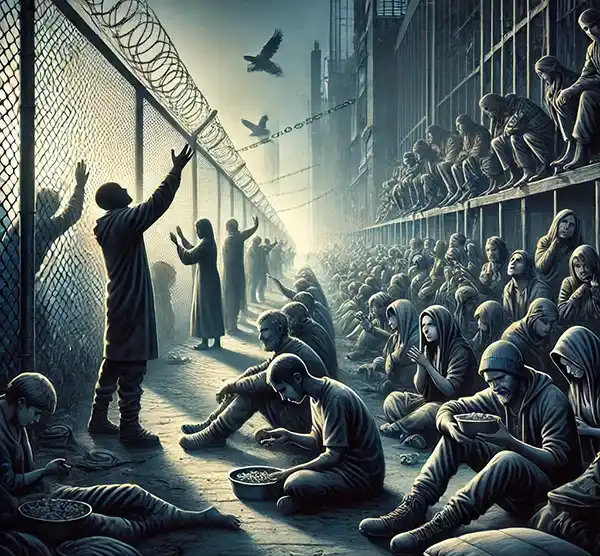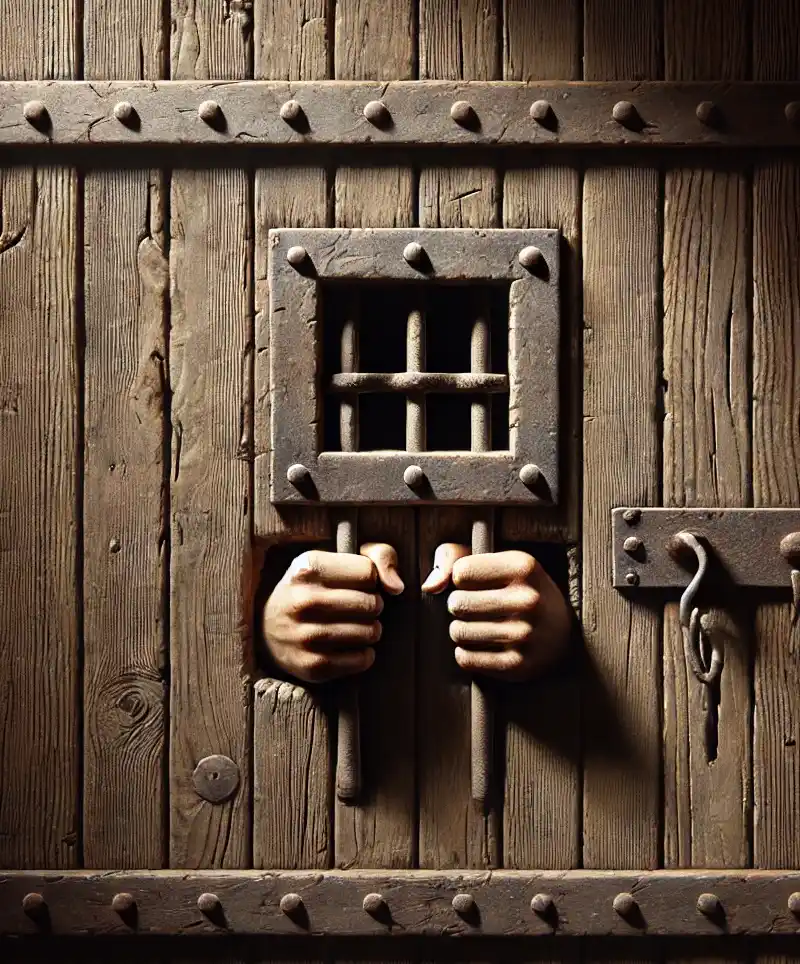A Celebration of Dignity, Equality, and Humor
Each year on December 10th, the world takes a collective pause to reflect on the rights that define humanity. It’s Human Rights Day, an occasion born from the adoption of the Universal Declaration of Human Rights (UDHR) by the United Nations General Assembly in 1948. While the topic of human rights is inherently serious, this day also invites us to explore its significance with a touch of lighthearted perspective—after all, the ability to laugh and find joy is a right in itself.
What Are Human Rights, and Why Do They Matter?
Human rights are the fundamental entitlements that every person is born with, regardless of nationality, ethnicity, gender, religion, or favorite pizza topping. These include the right to life, freedom of speech, access to education, and the pursuit of happiness—although the last one might depend on finding a decent Wi-Fi signal these days.
The UDHR, often described as a roadmap for global freedom and justice, comprises 30 articles. It covers everything from the prohibition of torture to the right to a fair trial. And yes, it even implicitly supports the right to complain when your coffee order is wrong—just not too loudly.
A Brief History of Human Rights Day
The seeds of Human Rights Day were planted in the aftermath of World War II, a period when the world was reeling from atrocities that highlighted the dire need for universal principles to safeguard human dignity. On December 10, 1948, the United Nations General Assembly adopted the Universal Declaration of Human Rights (UDHR), a groundbreaking document that aimed to set a global standard for freedom, justice, and equality. Drafted by a diverse committee that included representatives from different cultures and legal traditions, the UDHR became a beacon of hope and a blueprint for a more equitable world.
Eleanor Roosevelt, who chaired the drafting committee, famously described the declaration as a “Magna Carta for all mankind.” Her leadership was instrumental in ensuring the document addressed a wide range of issues, from the right to life and liberty to the right to education and freedom of expression. The committee included members like René Cassin of France, who provided a legal framework, and Charles Malik of Lebanon, who emphasized philosophical and ethical considerations. This collaborative effort underscored the universal aspirations of the declaration.
Human Rights Day was established not just to commemorate the adoption of the UDHR but to serve as a reminder of its continued relevance. Over the years, this day has become an opportunity for individuals, organizations, and governments to reflect on the progress made and the challenges that remain. Events range from educational seminars and public campaigns to artistic performances and peaceful demonstrations, all aimed at promoting awareness and advocating for the protection of rights.
 The significance of Human Rights Day has only grown as new challenges emerge. From digital privacy and climate justice to the rights of marginalized communities, the principles enshrined in the UDHR continue to evolve to address the complexities of modern society. Each year, the day serves as a call to action, encouraging people to uphold the values of equality, dignity, and justice that lie at the heart of human rights. It is a celebration of humanity’s collective commitment to creating a fairer and more compassionate world.
The significance of Human Rights Day has only grown as new challenges emerge. From digital privacy and climate justice to the rights of marginalized communities, the principles enshrined in the UDHR continue to evolve to address the complexities of modern society. Each year, the day serves as a call to action, encouraging people to uphold the values of equality, dignity, and justice that lie at the heart of human rights. It is a celebration of humanity’s collective commitment to creating a fairer and more compassionate world.
The State of Human Rights Today
The state of human rights today often feels like an ongoing struggle marked by both triumphs and challenges. In some regions, freedom of expression is under significant threat, as individuals face censorship, imprisonment, or even violence for speaking out. Journalists and activists, essential voices for accountability, often find themselves targeted simply for seeking truth. While technology has amplified global awareness of such issues, it has also been used as a tool for surveillance and suppression.
Gender inequality remains a pervasive issue worldwide. While progress has been made in areas like education and political representation, systemic discrimination persists in employment, healthcare, and personal safety. Women and girls in many regions are denied access to opportunities and resources, and violence against them remains an alarming concern. It’s sobering to think that in the 21st century, basic gender equity is still a distant dream in some societies.
Climate change has emerged as a critical human rights issue. The effects of rising sea levels, extreme weather events, and resource depletion are not evenly distributed, disproportionately affecting vulnerable populations. Environmental degradation often forces communities to migrate, compromises food security, and strips people of their right to live in a safe and healthy environment. The intersection of human rights and climate justice has become one of the most pressing concerns of our time.
Economic disparity continues to widen the gap between the privileged and the marginalized. Access to necessities such as healthcare, clean water, and education is still a luxury for millions. While global efforts like poverty alleviation programs and international aid provide some relief, systemic inequalities rooted in history and policy create barriers that are difficult to overcome.
However, there are reasons for hope. Grassroots movements have gained momentum, pushing for reforms and holding authorities accountable. Social media and global connectivity have amplified voices that might otherwise be silenced. Countries are repealing discriminatory laws, implementing policies for better inclusion, and recognizing new dimensions of human rights, such as digital privacy and climate resilience.
While the journey is far from complete, every small victory reminds us of the collective power to effect change. The state of human rights today is a reflection of humanity’s resilience—an ongoing battle that requires persistence, collaboration, and an unwavering commitment to justice.
Celebrating Human Rights Day
How does one celebrate a day dedicated to such a lofty concept? There’s no one-size-fits-all approach, but here are some ideas:
- Educate Yourself: Dive into the UDHR. It’s like a menu for a fair and just society—except everything’s free.
- Volunteer: Support organizations that advocate for human rights. Whether it’s helping refugees or donating to causes, every action counts.
- Use Your Voice: Raise awareness about issues that matter. Post responsibly on social media—because the right to free speech also includes the responsibility not to spread misinformation.
- Reflect: Take a moment to appreciate your freedoms. If you’re reading this with access to the internet, a warm beverage, and the ability to roll your eyes at bad jokes, you’re already ahead of millions who lack these privileges.
Rights We Might Need in the Future
Human rights evolve with society, so let’s consider a few we might need to add soon:
- The Right to Log Off: Protecting individuals from the tyranny of constant notifications and midnight email pings.
- The Right to a Universal Charger: Because enough is enough—let’s end the reign of incompatible cables.
- The Right to an Opinion-Free Zone: A sanctuary where nobody tries to convince you pineapple belongs on pizza (or doesn’t).
Human Rights Day isn’t just about policies or proclamations—it’s about people. It’s about recognizing our shared humanity, embracing diversity, and standing up for those who can’t stand up for themselves. It’s about ensuring that the world becomes a place where every individual can thrive, laugh, and live with dignity.
So, as you go about your day, spare a thought for the incredible power of human rights. Advocate where you can, appreciate what you have, and never stop striving for a better world. After all, the right to dream big is one we all share.
And hey, if you manage to find a universal charger along the way, consider it a bonus.
Please Share our Content






 The significance of Human Rights Day has only grown as new challenges emerge. From digital privacy and climate justice to the rights of marginalized communities, the principles enshrined in the UDHR continue to evolve to address the complexities of modern society. Each year, the day serves as a call to action, encouraging people to uphold the values of equality, dignity, and justice that lie at the heart of human rights. It is a celebration of humanity’s collective commitment to creating a fairer and more compassionate world.
The significance of Human Rights Day has only grown as new challenges emerge. From digital privacy and climate justice to the rights of marginalized communities, the principles enshrined in the UDHR continue to evolve to address the complexities of modern society. Each year, the day serves as a call to action, encouraging people to uphold the values of equality, dignity, and justice that lie at the heart of human rights. It is a celebration of humanity’s collective commitment to creating a fairer and more compassionate world.








 "Sláinte!" is a traditional Irish expression used as a toast, equivalent to "Cheers!" in English.
"Sláinte!" is a traditional Irish expression used as a toast, equivalent to "Cheers!" in English.